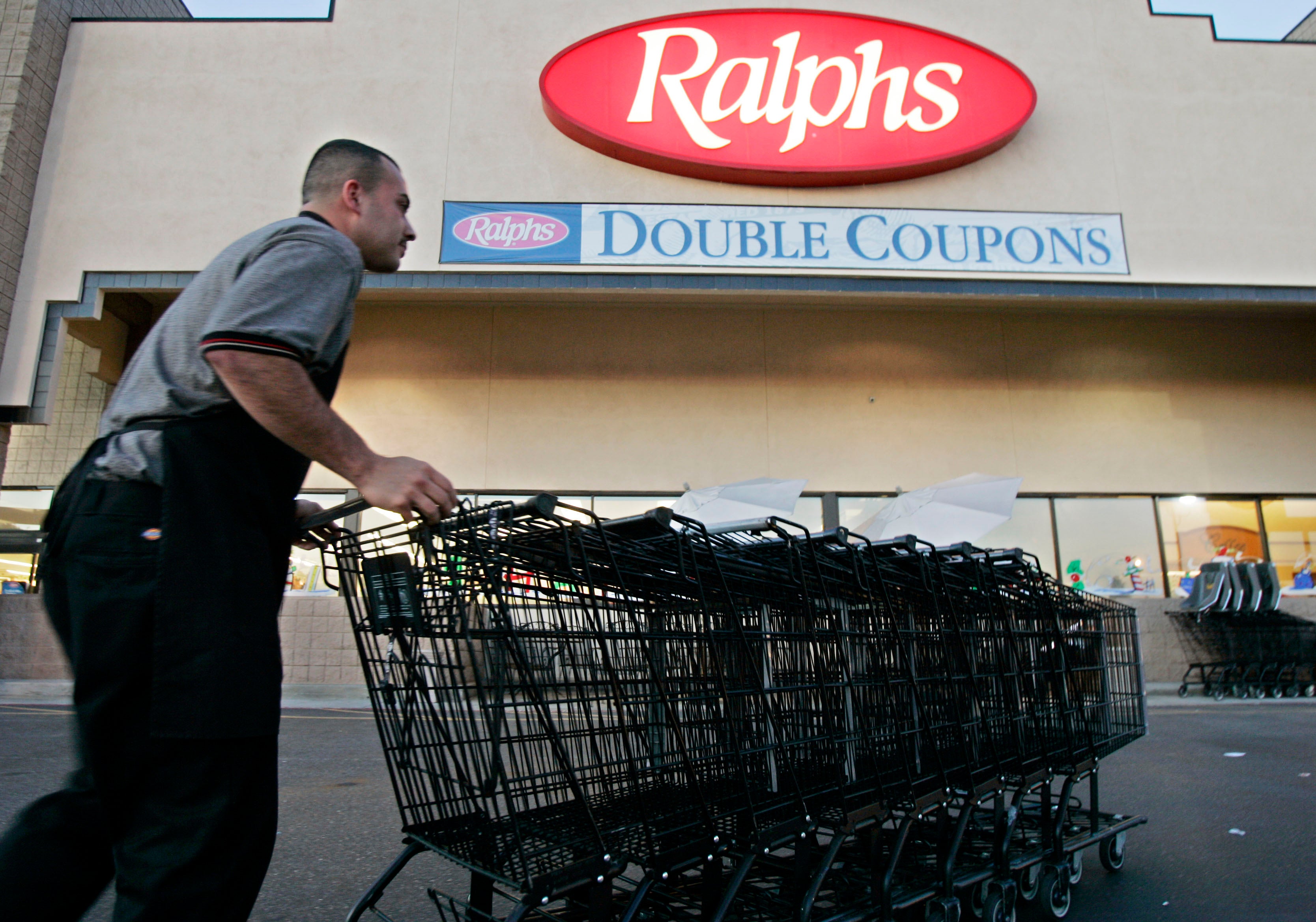California lawsuit says Ralphs broke the law by asking job-seekers about their criminal histories
California has sued the Ralphs supermarket chain, alleging it violated state law by asking job-seekers whether they had criminal records and illegally rejecting hundreds of applicants

Your support helps us to tell the story
From reproductive rights to climate change to Big Tech, The Independent is on the ground when the story is developing. Whether it's investigating the financials of Elon Musk's pro-Trump PAC or producing our latest documentary, 'The A Word', which shines a light on the American women fighting for reproductive rights, we know how important it is to parse out the facts from the messaging.
At such a critical moment in US history, we need reporters on the ground. Your donation allows us to keep sending journalists to speak to both sides of the story.
The Independent is trusted by Americans across the entire political spectrum. And unlike many other quality news outlets, we choose not to lock Americans out of our reporting and analysis with paywalls. We believe quality journalism should be available to everyone, paid for by those who can afford it.
Your support makes all the difference.California sued the Ralphs supermarket chain on Thursday, alleging that it violated state law by asking job-seekers whether they had criminal records and illegally rejecting hundreds of applicants.
The California Civil Rights Department contends that Ralphs Grocery Co. “has ignored and continues to ignore” the Fair Chance Act “by screening out otherwise qualified applicants on the basis of criminal histories that do not have any adverse relationship with the duties of the job for which they were applying,” according to a departmental press statement.
The law, which took effect in 2018, was designed to reduce the chance of ex-convicts reoffending by giving them opportunities to earn a living.
In general, employers with five or more workers can't ask applicants about their criminal histories before making job offers, and must follow specific procedures for rejecting them. The law says employers can't rescind a job offer if the applicant's conviction, which could be for a misdemeanor, wouldn't directly affect job responsibilities.
Instead, Ralphs job-seekers were given what the suit calls a “confusing and misleading” application form that included questions seeking disclosure of their criminal histories. Most candidates who had their job offers revoked weren't given any way to contact Ralphs to challenge the decision as the law requires, the statement said.
"The instructions provide detailed, superfluous instructions concerning how to report convictions, after telling applicants that they do not need to answer the question. Additionally, by suggesting specific convictions that should not be reported in California, the instructions necessarily suggest that other convictions should be reported," the lawsuit contends.
Between 2018 and 2022, more than 70% of California applicants answered the question anyway, according to the suit.
Some candidates “lost their job offers based on convictions for a single misdemeanor count of excessive noise. Other applicants who had convictions from other states for simple cannabis possession were also disqualified,” the department's statement said.
“When roughly 70 million Americans have some sort of record, policies like those employed by Ralphs aren’t just discriminatory and against California law, they don’t make sense,” the department’s director, Kevin Kish, said in the statement. “Ralphs has continued to unlawfully deny jobs to qualified candidates and that’s why we’re taking them to court.”
An email seeking comment from Ralphs’ corporate owner, The Kroger Co., wasn’t immediately returned.
Ralphs has 185 stores in California with about 25,000 employees, according to the lawsuit.
It’s the first lawsuit filed over the law, although the Civil Rights Department has reached settlements with other employers in about 70 other cases alleging violations. They include a $100,000 settlement last year on behalf of applicants who were denied jobs at a construction company.